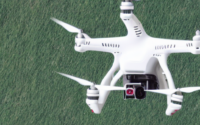The Evolution of Industrial Manufacturing: How Robots and Cobots are Transforming the Industry
The Evolution of Industrial Manufacturing: How Robots and Cobots are Transforming the Industry
Introduction:
Within the realm of industrial manufacturing, automation has become a key player, with robots and collaborative robots (cobots) taking center stage. These advanced technologies are redefining the way products are made, increasing efficiency, reducing costs, and improving safety in the workplace. In this article, we will delve into the evolution of industrial manufacturing and explore how robots and cobots are transforming the industry.
The Rise of Automation in Manufacturing:
The use of automation in manufacturing has been steadily increasing over the years. Traditional industrial robots have been a mainstay in factories, handling repetitive tasks with speed and precision. These robots are programmed to perform specific tasks, such as welding, painting, or assembling products, without the need for human intervention. While effective, traditional industrial robots have limitations in terms of flexibility and adaptability.
Enter Cobots: The Collaborative Robots:
Collaborative robots, or cobots, have emerged as a new generation of robots designed to work alongside human operators. Unlike their traditional counterparts, cobots are equipped with advanced sensors and programming that allow them to collaborate with humans in a shared workspace. Cobots are inherently safe, as they are programmed to detect and avoid collisions with humans, making them ideal for tasks that require human dexterity and decision-making.
Key Benefits of Robots and Cobots in Industrial Manufacturing:
The integration of robots and cobots in industrial manufacturing brings a host of benefits to businesses. These include increased productivity, improved product quality, reduced operational costs, enhanced workplace safety, and the ability to handle complex tasks with ease. Robots and cobots can work around the clock without fatigue, leading to higher production output and efficiency.
Enhancing Efficiency and Productivity:
One of the primary advantages of robots and cobots in industrial manufacturing is their ability to enhance efficiency and productivity. These advanced technologies can perform tasks with speed and precision, leading to faster production cycles and reduced lead times. By automating repetitive and mundane tasks, robots and cobots free up human workers to focus on more value-added activities, ultimately increasing overall productivity.
Improving Product Quality and Consistency:
Robots and cobots are capable of performing tasks with unparalleled consistency and accuracy, leading to improved product quality and reduced defects. By eliminating human error and variability, these technologies ensure that each product meets the desired specifications and standards. This level of precision helps businesses maintain a high level of quality control and customer satisfaction.
Reducing Operational Costs and Downtime:
Another significant benefit of incorporating robots and cobots in industrial manufacturing is the reduction of operational costs and downtime. While the initial investment in automation technology may be high, the long-term cost savings are substantial. Robots and cobots can operate continuously without breaks, leading to increased production output and efficiency. Additionally, these technologies require minimal maintenance and have a longer lifespan compared to human workers.
Enhancing Workplace Safety and Ergonomics:
Safety is a top priority in any manufacturing environment, and robots and cobots play a crucial role in enhancing workplace safety. Cobots, in particular, are designed to work alongside human operators safely, thanks to their advanced sensors and collision detection capabilities. By taking on dangerous or physically demanding tasks, robots and cobots help reduce the risk of workplace injuries and ergonomic issues, creating a safer and more conducive work environment for employees.
The Future of Industrial Manufacturing with Robots and Cobots:
As technology continues to advance, the future of industrial manufacturing looks increasingly automated. Robots and cobots will play a central role in driving innovation, improving efficiency, and shaping the industry landscape. With ongoing developments in artificial intelligence, machine learning, and sensor technology, robots and cobots will become even more intelligent, adaptable, and collaborative, further revolutionizing the way products are manufactured.
Conclusion:
In conclusion, robots and cobots are revolutionizing industrial manufacturing by enhancing efficiency, productivity, product quality, and workplace safety. As businesses strive to remain competitive in a rapidly evolving market, the adoption of automation technologies becomes increasingly crucial. By embracing robots and cobots, manufacturers can streamline operations, reduce costs, and unlock new opportunities for growth and innovation in the ever-changing landscape of industrial manufacturing.


